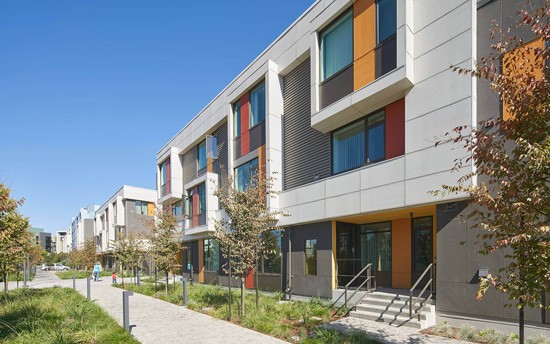For more than four decades, CEI has been a leader in the affordable housing movement, using technical expertise and experience with housing development and finance to shape policy at the national, state, and local levels. CEI staff are frequently consulted by policymakers, provide testimony on legislation, serve on advisory bodies, serve on boards of directors of advocacy organizations, and provide technical support to varied affordable housing policy efforts.
CEI’s deep understanding of affordable housing finance programs informs our ongoing comments to state regulations, guidelines, and legislation. We regularly coordinate our technical comments and advocacy efforts with our partners in the nonprofit affordable housing development field. Currently staff serve on the boards and participate in policy committees and policy efforts of Housing California, California Coalition for Rural Housing, Non-Profit Housing Association of Northern California, Southern California Association of Non-Profit Housing, East Bay Housing Organizations, and California Tax Reform Association.

A couple examples of current policy engagement are below.
Fairer commercial property taxes
CEI has long been engaged in tax reform efforts on a statewide level, through participation on the board of California Tax Reform Association. Since 2011, we have worked with Housing California to engage the affordable housing community in a movement to close loopholes in the State’s commercial property tax collection to reclaim billions of dollars for our communities.
Limits on tax assessments on commercial properties, dating back to the 1978 Proposition 13, deprive our communities of more than $12 billion per year, hindering the development of infrastructure like roads, schools, and affordable housing. CEI is part of a strong diverse coalition of labor and community organizations working to address these tax loopholes and make corporations and wealthy investors pay their fair share. A fairer assessment structure would incentivize development, including affordable housing and mixed-use development, and discourage property owners from leaving sites vacant and blighted. Community Economics is committed to play a leadership role in the campaign to place a measure on the 2024 ballot.
Eliminating racist barriers in affordable housing
Article 34 of the California State constitution, passed in 1950 by voter referendum, requires that the development of all publicly funded affordable housing be subject to voter approval in a city or county. Part of a national wave of racist segregationist efforts that targeted post-World War II development of public housing, this outdated measure still creates significant hurdles for development of affordable housing. State and local governments wanting to develop affordable homes have had to devise complex financing structures that increase delays and costs. The moment is right to repeal Article 34. With more than half of renters in California spending over a third of their income on housing, and the 2020-2021 Covid-19 pandemic drawing attention to our unhoused neighbors, much political and media attention has focused on our affordable housing crisis and connections to racial and social justice. CEI is a leader in the coalition preparing a measure for the 2022 ballot.

Some examples of previous CEI engagement in successful policy and advocacy efforts include the following.
National level: Funding affordable housing during the recession
In the late 2000s, the federal tax credit program was faltering as the recession took many investors out of the market. CEI was a leader in the effort to persuade Congress to substitute cash for tax credits for a short time until the market rebounded. Thousands of affordable housing units were built under that temporary program and the respite allowed the tax credit program to recover.
State level: Rehabilitating homes for the most vulnerable
Working with several clients trying to rehabilitate older properties that have loans from old State HCD programs, CEI identified a serious roadblock in HCD regulations prohibiting restructuring of projects, particularly those serving vulnerable extremely low income residents. CEI led an effort that brought nonprofit developers together with HCD staff and legal advocates for the poor to craft legislation allowing financial restructuring enabling rehabilitation of the properties while protecting tenants. This AB1699 legislation along with its companion bill AB 523, are enabling dozens of projects throughout the state to secure the necessary rehabilitation to provide safe affordable housing for years to come.
